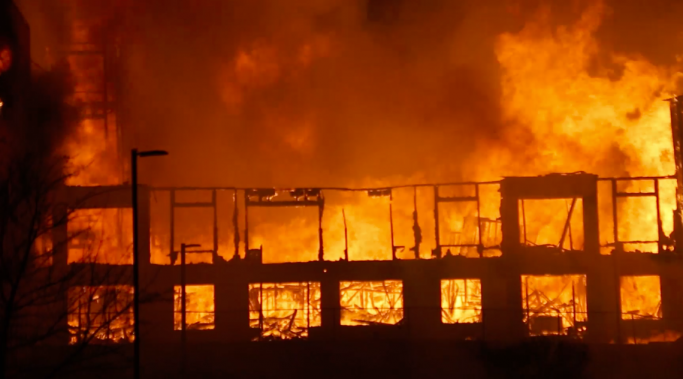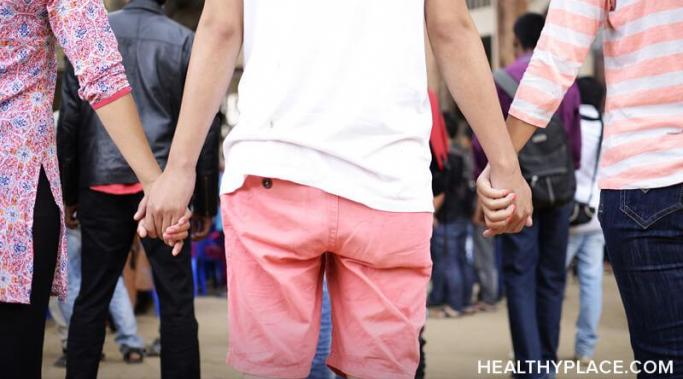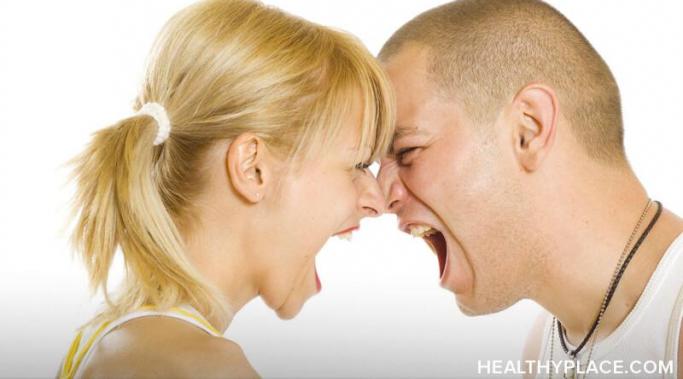Blogs
A large part of my experience with anxiety has been linked knowing I don't have control and my fear of instability. While I know that I can't control everything, these coping techniques for both rational and irrational fears have helped me avoid anxiety. The one thing therapy taught me is that I can cope with anxiety even if I don't have control.
So, you've spotted the signs of verbal abuse in your relationship and you want to end the verbal abuse. You know that blaming, shaming, threatening and name-calling does not equate to a happy or healthy partnership. You realize that maybe -- just maybe -- you deserve better. So how do you make it stop? Is ending verbal abuse possible?
In a natural disaster, a fire or hurricane, you run and leave your bipolar medications behind. Now what? I faced that problem. Here's what happened.
My name is Nancy Zacharakis and I’m excited to be joining the Recovering from Mental Illness blog at HealthyPlace. I’ve suffered with depression and anxiety for about three years, from the ages of 21-24. My mental illness began after competing in a bikini bodybuilding competition and suffering with binge eating disorder. The unhealthy relationship with food and my body during my 16-week competition preparation was a catalyst for an eating disorder. My binge eating then led me to feel depressed about my life, my body, my relationships, and my career. I suffered from anxiety as well, feeling anxious about what was happening to me, what my future was going to look like and how I was going to deal with this abnormal behavior.
Although I understand the huge amount of frustration that comes from responding to mental health stigma, I also feel that there are two ways to handle irritation. One way is getting mad, worked up, and starting to sling names, threats, and sarcasm around like there’s no tomorrow. The other is to approach these stigmatizers with a level head and facts, and knowing when to disengage. In the world of the Internet, it’s pretty easy to go about the former, but in this blog, I’m going to explain why I think the latter is a much more effective way to respond to mental health stigma.
A lot of energy goes into changing the world for our children, and that's before childhood mental illness joins our parenting struggles. If it's been a rough day for my son, in terms of his disruptive mood dysregulation disorder (DMDD) especially, I have barely enough energy to make dinner, let alone "change the world." Making change for our children is important to me, though. After dealing with childhood mental illness the last few years, I've realized that, sometimes, the world around my son needs more of a "cure" than he does.
Why would we use gratefulness as a binge eating recovery tool? Why is gratitude important to eating disorder recovery? Well, sometimes as humans we become so bogged down in all the negative of this world. We focus on what's wrong, what needs to be fixed, and how much better life could be. What would happen if we refocused our mind on all the things that were going right? All those things we find beautiful in the everyday. There is always something to find joy in even when we seem to be surrounded by the darkest of moments. Gratefulness is important to binge eating disorder recovery because it helps us find joy, and in joy we're strong.
I’ve written recently about how I’m trying to lose weight while on a schizophrenia medication that causes weight gain. Now here’s an update. As I’ve mentioned before, I’m on an atypical antipsychotic medication for my schizoaffective disorder that causes severe weight gain: yes, severe. At times my natural weight has almost doubled on this schizophrenia medication.
Sitting through a panic attack without being able to escape is a thought that can inspire a new anxiety attack. Panic attacks can strike seemingly out of the blue, and anxiety attacks hit in response to escalating stress and worry. They often happen at terrible times, times and places when we’re around other people and in situations that we can’t easily escape (which of course makes sense, as these are anxiety-provoking situations). Keep reading to learn four ways to sit through a panic attack when you can’t leave.
Did you know that you can use nature to treat anxiety? But what if you can't get to a beach or national forest? Don't worry, anxiety relief is closer than you think--it can be right in your backyard. Find out how the outdoors can soothe and how you can use nature to treat anxiety daily.









